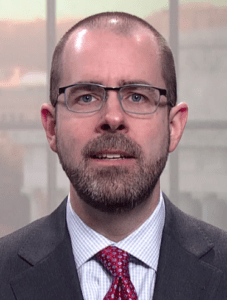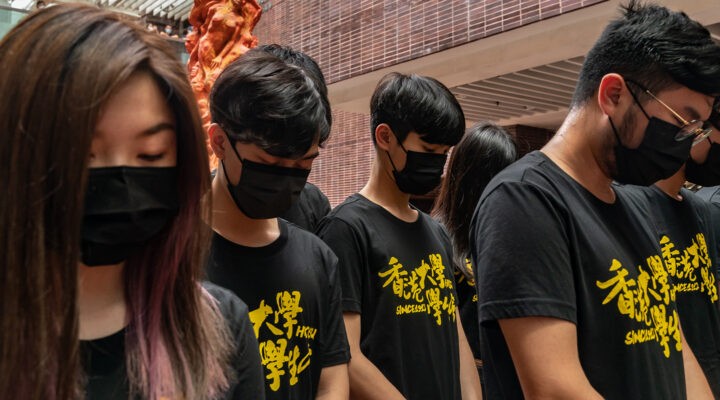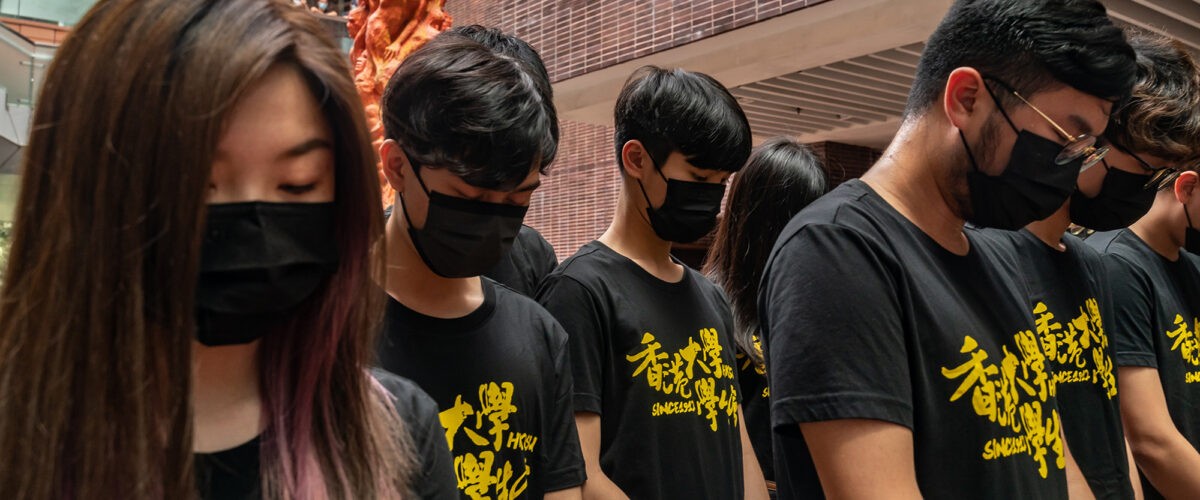Soon Christians worldwide will celebrate the birth of Christ. Presents will be exchanged. Special songs performed. Friends and families will gather. Lights will brighten the gloom of winter. And while Christmas is more cultural than sacred for many, these traditions quietly mirror Christian theology — gifts parallel God giving his Son to the world, songs performed like angelic choirs praising God, families gathering as did Mary and Joseph on the first Christmas with the wise men later visiting, and lights representing the light of God entering the world.
But the darker side to the Christmas narrative is often overlooked. One about suffering and dislocation. And for millions of Christians today, the other side of the Christmas story resonates more than happy songs sung by a choir.

Knox Thames
The Holy Land of the first century was a place of occupation and repression. Romans ruled directly or through proxies, controlling all aspects of life. Violence was ever-present. Public executions through crucifixion made evident Rome’s power over everyone. Even the census that caused Joseph to take his pregnant fiancé on a dangerous journey to Bethlehem late in her pregnancy was forced by Rome. Caesar wanted to know the scope of his domain. The holy family had no choice.
And this Christmas, Christians also face oppression and violence. Believers in China, for instance, are under enormous pressure from Beijing to surrender to the power of the Communist Party. Churches bulldozed, pastors arrested, the faithful punished. The state’s power is on display for all to see and fear.
And while presidents and prime ministers will issue celebratory statements on Dec. 25, the circumstances couldn’t have been more different on that first Christmas. The Savior of the world did not arrive in power — quite the contrary. Christ came as a vulnerable infant born in a stable to poor Nazarenes, unable to find a place to stay. Likewise, many Christians today live in the margins, eking out a living in Cairo’s garbage slums, as street sweepers in Pakistan’s megacities, or the favelas of Brazil. They can relate to living in a stable.
And while Christmas celebrates new life, the first Christmas is also linked to suffering and death. King Herod, the Roman puppet governor over Judea, was terrified by rumors of a messiah. The book of Matthew records how “magi from the east came to Jerusalem and asked, ‘Where is the one who has been born king of the Jews? We saw his star when it rose and have come to worship him.’” Herod met with the wise men and asked them to report on what they found in Bethlehem. After seeing Jesus and worshiping him, the magi followed a premonition in a dream and skipped town.
Herod was furious. His fear and rage were so complete that he “gave orders to kill all the boys in Bethlehem and its vicinity who were two years old and under.” A great tragedy ensued.
“Christians today will likewise face extreme violence on Christmas.”
Christians today will likewise face extreme violence on Christmas. Christians in North Korea, once referred to as the Jerusalem of the East, must hide deep underground. House churches in Iran will celebrate in secret. Christians in Nigeria confront the risk of murder by Boko Haram or the kidnapping and forced conversion and marriage of their girls. ISIS and its fellow travelers will likely target Christmas services across the Middle East and South Asia, looking to bring death and destruction on a day celebrating new birth.
And like the innocent residents of Bethlehem who lost their sons, other faith communities also will experience suffering and pain this Christmas. Genocide-like conditions confront Uighur and Rohingya Muslims in China and Burma. Baha’is face unceasing repression in Iran. Hindus in Pakistan and Muslims in India live under a cloud of potential violence. Converts to Christianity, atheists, and members of the LGBTQ community across the Middle East must daily hide who they are or risk jail or murder.
And like Mary, Joseph and the infant Jesus, Christians and other persecuted communities are running for their lives. Scriptures tell how an angel warned Joseph in a dream to flee to Egypt to avoid Herod’s slaughter, becoming refugees without a home. Today, many fleeing repression will spend the holiday as refugees, praying for any country to let them in. Hailing from Iraq and Syria, Iran and Afghanistan, Burma and Pakistan, and elsewhere, they too have fled violence looking for safety of a third country. Yet, as Mary and Joseph were told in Bethlehem, there is no room for them.
Christmas is a duality. Darkness and light. Hope and suffering. Christmas inspires generosity and expectation for a new year. Jesus’ birth was, as Luke records, “good news that will cause great joy for all the people.” God entered the world to save it. Yet God also knew he would sacrifice his son to provide a pathway for reconciliation through Jesus’ death and resurrection 33 years later.
The key is to balance our celebration with a mindfulness of the uncertainty and pain experienced by millions worldwide. To truly celebrate this Christmas, we should remember Christians and others suffering around the world for their faith and commit to act for them.
Knox Thames served at the State Department during the Obama and Trump administrations in a special envoy role focused on religious minorities. He is writing a book about 21st century strategies to defeat religious persecution. Follow him on Twitter @knoxthames.
Related articles:
Christmas joy must be tempered by the cries of our neighbors | Opinion by Gavril Andreicut
Merry Christmas from Paul the apostle in prison | Opinion by Jenna Sullivan
Seeking the Prince of Peace in a nation overwhelmed by threats | Opinion by Bill Leonard


